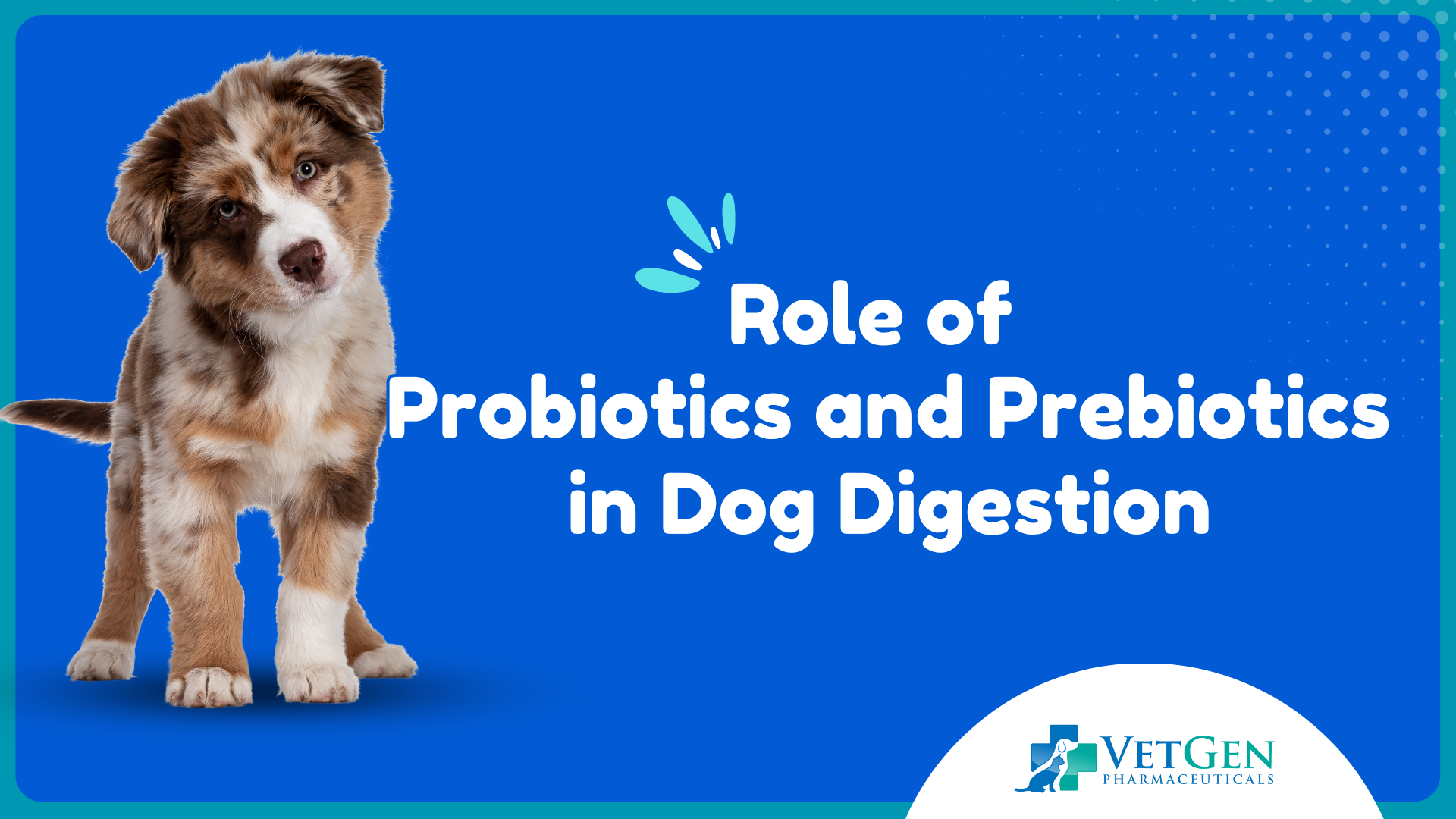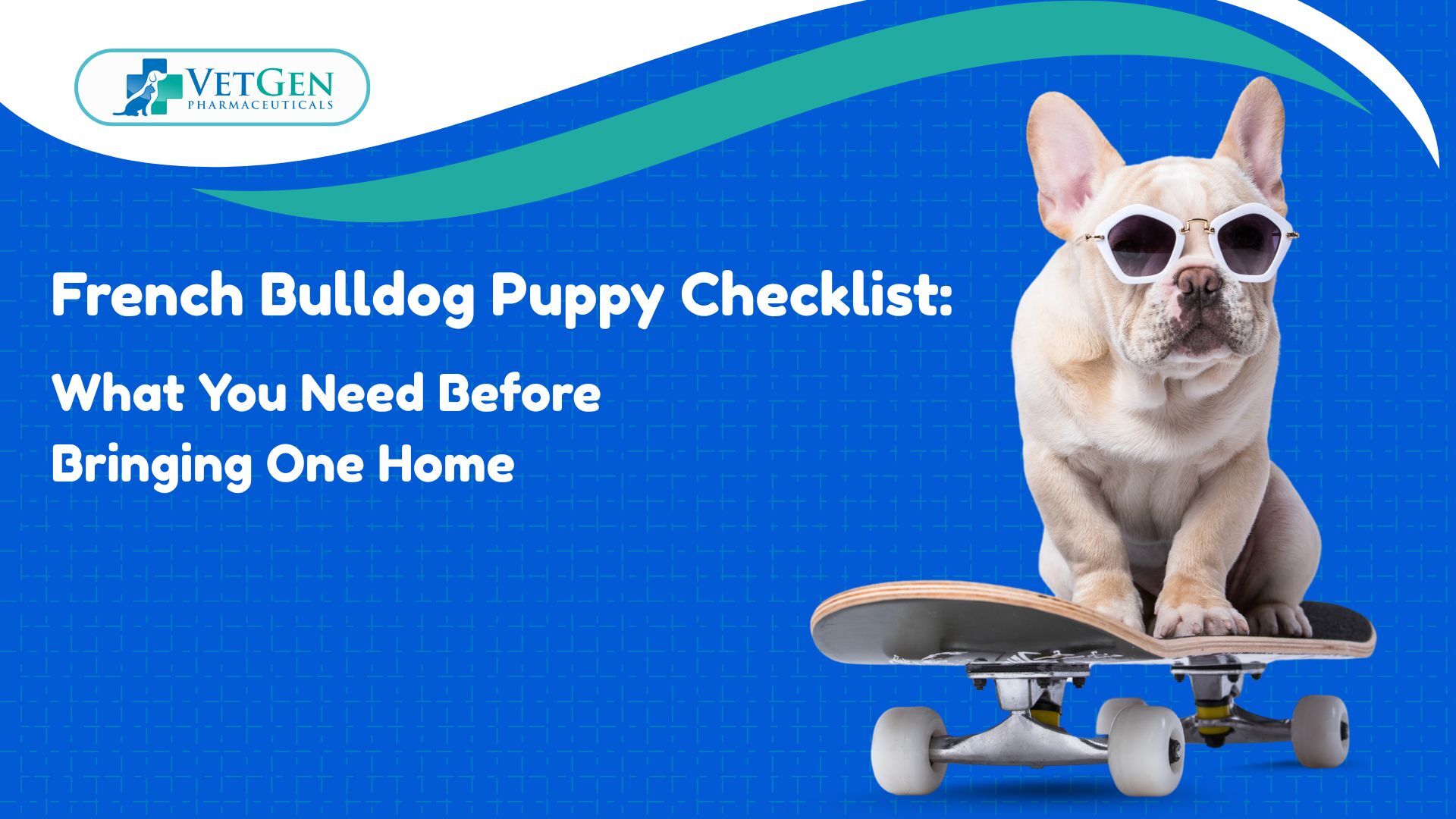Your dog’s body should be able to defend against harmful bacteria. The gastrointestinal (GI) tract of your dog has several special defense mechanisms against infections and for maintaining overall health.
So how can you maintain the optimal condition of your dog’s digestive tract barrier? In addition to keeping your dog healthy, good bacteria like probiotics and prebiotics facilitate the appropriate functioning of the digestive tract.
What are Probiotics and Prebiotics?
There is a lot of confusion regarding the difference between probiotics and prebiotics. Prebiotics act as the “food source” for beneficial GI flora, whereas probiotics are the actual organisms. Fibers that go through the digestive system are called prebiotics. They serve as a food source for the beneficial bacteria in the intestines. Remember that not all fibers function as probiotics.
Your dog may get prebiotics from a variety of food sources. It includes soluble fiber-containing compounds. One kind of fiber that the GI tract may break down and use as food is called soluble fiber. Whole grains, fruits, and vegetables are good providers of this kind of fiber. A lot of pet food manufacturers include prebiotic components in their products.
According to studies, probiotic supplements for dogs may be worthwhile to try if you want to support your pet’s long-term immune system, digestive, skin, and coat health.
Symptoms of acid reflux in dogs
Probiotics vs prebiotics for dogs: which one is good for your dog’s health? Probiotics for dogs digestive health help restore the normal count of your dog’s microbiome when it becomes disrupted for various reasons. Things like stress, disease, food modifications, and medicine can harm the microbiome.
A balanced microbiome has advantages for more than only the immune system. According to ISAPP, it can improve your dog’s energy, attitude, and potentially even joint stability. The complete range of prebiotic and probiotic advantages will become clearer as more research on these supplements is carried out.
Prebiotics are helpful when your dog may be having health problems.
Prebiotics and dog gut health are closely related. Here are some canine digestion probiotics benefits:
- Digestive problems: They can support healthy digestion and the digestive system as a whole. They allow the preservation and development of general gut health by promoting the probiotic balance.
- Nutrient Absorption: They affect both the microbiome and the pH of the intestines to improve nutrition absorption.
- Hormonal endocrine disorders: A variety of endocrine disorders, including diabetes, can alter the microbiota and result in further health problems. Probiotics help keep these disorders under control.
Signs That Your Dog Needs Probiotics
After going over the fundamentals of probiotic terminology, let’s talk about understanding when your dog needs them. Treating your dog with probiotics may be necessary if they are:
1. Recovering after being ill
Dogs can have a wide range of symptoms from different illnesses, and there’s always a chance that gut health can suffer. Your pet’s gut health may be disturbed by dietary changes, viruses, bacteria, fungi, parasite diseases, and even some allergens. In these cases, their gut microbiota may need to be rebuilt.
2. Using Antibiotics
Although antibiotics can be useful in treating some diseases and infections, they can also upset the balance of microorganisms in the digestive system.
3. Having Diarrhea
Anal gland impairment and associated problems are more common in dogs with stool abnormalities caused by stress, sickness, or dietary allergies. Probiotics help restore the dog digestive health and cure diarrhea.
4. Experiencing Gas
If your pet has excessive or particularly foul-smelling gas, it may indicate a digestive system imbalance caused by a dietary intolerance or an underlying bacterial imbalance. With the dog gut microbiome support, you can make sure that your dog doesn’t get gassy.
5. Experiencing Constipation
Dogs who have trouble with bowel movements may have stiff, pebbly feces. Changes to the microbiota of the gut can worsen constipation. Probiotics will help your dog get back its healthy stool movement.
Tips for Giving Probiotics To Your Dog
We have discussed the what and why of probiotics and now it’s time to understand the how. How should you begin providing probiotics to your dog? Like any supplement for dogs, probiotics must be used in accordance with certain guidelines to get the best results.
1. Start Off Slowly
There’s a chance that your dog will have uncomfortable gastrointestinal symptoms after introducing a new probiotic. For most pets, these symptoms can be normal as new bacteria settle into their gut microbiome.
However, try starting at a half-dosage of the probiotics for a week before increasing to the full advised dose to help prevent your pet’s symptoms from becoming too severe.
2. Don’t Mix Probiotics
Never combine different strains, brands, or CFUs at the same time. This can increase the likelihood of bacterial overgrowth and make it challenging to determine which probiotics are benefiting or harming your pet’s GI system.
3. Trial and Error
If your pet shows signs of bloating, diarrhea, or other symptoms while adjusting to a probiotic, don’t give up. While this doesn’t always imply that probiotics aren’t good for your pet, it may point to allergies or sensitivities to specific microbial strains or other probiotic supplement ingredients.
4. Use as Directed
Giving your dog the probiotics on a regular basis is part of the “wait to work” period. Feeding your dog probiotic chews or adding probiotic powder to their diet at the same time every day will offer them the best chance of producing the best outcomes.
5. Stagger with Antibiotics
Offering probiotics to your pet too soon after they take a dose of prescribed antibiotics is something you should steer clear of. If the combination of the “pro-” and “anti-” wasn’t obvious to you, probiotic therapy may be less successful if probiotics are taken too soon after an antibiotic dosage.
Conclusion
Probiotics are good bacteria that live in the digestive system of your dog. These beneficial gut flora maintain homeostasis throughout the body to ward off diseases and promote wellness. So, if you want to maintain a good digestive health for your dog, make sure you include probiotics and prebiotics in your dog’s diet.
Frequently Asked Questions
Which conditions are treatable with probiotics?
Your vet may recommend probiotic pills if the dog has immunosuppressive disorders. Probiotics support the immune system’s ability to fend off infections and combat microorganisms. Probiotics also lower blood sugar levels to support a healthy weight in your dog.
How much probiotics should you give your dog?
Probiotics should only be given to dogs by veterinarians on their advice and prescription. Consult your veterinarian before giving your dog probiotic supplements meant for human use. Probiotics can benefit dogs and people in similar ways, but only a veterinarian can recommend the correct kind and dosage for your dog.
Can probiotics be used to treat diarrhea in dogs?
Probiotics can help with diarrhea in dogs brought on by stress related to moving, boarding, or any other interruption in routine. Probiotic use may also help with diarrhea brought on by infections that create an excess of bacteria in the digestive tract.






